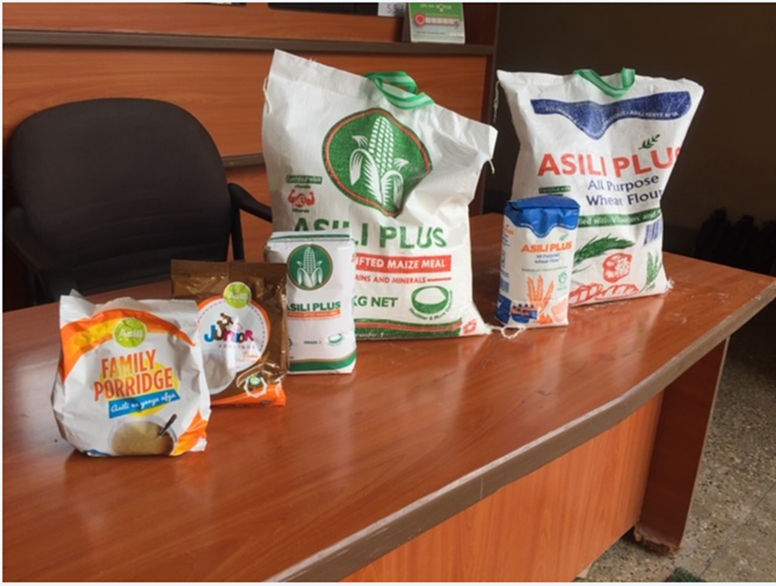Reducing Vulnerability to Price Volatility - Kenya
Project Description
Price volatility creates food and nutrition insecurity for millions of people. For the world’s poor – including smallholder farmers as well as urban and peri-urban households–rapid rises in food prices can have immediate and sometimes devastating effects. Households may have to forgo other expenses, such as school fees or medical bills, to keep food on the table, or in the worst cases, they may go hungry.
This is why the CFC has been doing its best to address this problem through projects like our partnership with Shalem Investment Ltd (‘Shalem’). Shalem is an established social for-profit business aggregating, transporting, and marketing grains, cereals and legumes for use by agri food processors, such as East African Breweries, Unga Ltd, and Bidco. Shalem was established by a female CEO, Ms. Ruth Kinoti, who helped smallholder farmers in successfully marketing their sorghum crops. Shalem works with thousands of farmers and is set to expand their activities with funds from CFC. Shalem will start processing facilities based on variety of grains to access the Bottom-of-Pyramid (BoP) market with more innovative nutritious blended food and hopefully, thereby, providing much needed nutrition security to their clients.
CFC’s investment in Shalem aims to (a) invest in a storage facility where all grains and related farm produce from farmers will be stored, and (b) a value addition facility where maize will be cleaned and blended with sorghum, millet and beans for better nutrition bonding. By creating a product that incorporates drought-tolerant sorghum and millet in addition to maize, plus providing reliable storage facilities, the project aims to reduce the financial risks local farmers are facing due to volatile maize prices while addressing the need of their nutrition security.
To launch this project, Shalem also received support from Food Trade East and Southern Africa (FTESA) to improve the quantity and quality of the farmers’ crops. The development of a fully integrated commodities supply chain is also supported by the 2SCALE project team of the International Fertilizer Development Center (IFDC), and the Dutch Government.
The company plans to expand its supply network to include up to 50,000 farmers from the Upper Eastern region of Kenya over the next 5 years. Shalem is providing a variety of incentives to help the smallholder farmers in their network to achieve high-quality production, aggregation and marketing, such as training programs, soil testing, linking farmers to certified seeds and other farm inputs, and assisting them in adopting new technologies and providing access to micro loans. These improvements are expected to lead to productivity reaching 2,000 kg/ hectare, tripling farmers’ incomes to USD 215 per harvest. In addition, Shalem expects to create 17 new permanent jobs.
Current status
The CFC loan was disbursed in tranches from May 2018 onwards, and construction activities of the modern processing plant commenced in-mid-2018. The plant has commenced operations by the end of 2019, equipping a fine cleaner and sorter, mobile dryer, mixer, extruder, packaging line, and other equipment financed by the CFC. The plant will enable Shalem to upscale its nutritional product range by processing maize, beans, sorghum, millet, soybeans and green grams.
Innovative business model
Shalem has introduced its first new nutritional products to the BoP-market under the brand name Asili Plus in 2018. The Asili Plus Porridge and Ugali are currently supplied to schools, and are available in over 50 retail shops and BoP-markets in Meru and surrounding counties. These value added activities, accounting for 40% of Shalem’s income in 2019, create a more stable and secure demand for the smallholder farmers and a nutritious and accessible product for over 42,000 BoP consumers living in poor conditions. Shalem received support to construct 6 local collection centers for the farmers and expanded its farmer network from 22,200 to over 25,300 farmers during 2019. About 70% of the farmers are women, and Shalem’s management team is currently represented by 4 women and 3 men.
During 2019 the project achieved the following: • Expansion of the network of suppliers, reaching a total of 25,358 smallholder farmers • Gender of the smallholder farmers: 72% women • Additional net income of the beneficiaries p.a.: Decreased from USD 144 to USD 108 • Additional Net hectares: 1,340 • Income per hectare: 765 Kg/acre • Additional jobs created in the factory: 14 (increased from 18 to 32 permanent jobs) • Net income per job created: USD 1,800
Impact of covid-19
The new nutritious food plant financed by CFC commenced full operations early 2020. Anticipating to the growing demand for its nutritious products, Shalem sourced high volumes of raw materials (almost double the volume of last year) during harvest season in Jan to early March, just before the Covid outbreak. Shalem is now confronted with huge volume of unsold stock, in particular for sorghum, which is normally sold to the breweries. Its nutritious products have also been also affected as its major customers, schools and BoP market retailers, were closed due to lockdown measures. For maize and wheat, raw materials needed for nutritious food line, Shalem’s own farmers could not fully satisfy their factory needs this season. Towards end of March and April, prices of maize and wheat skyrocketed because of hoarding thereby increasing the cost of production during that period when Shalem had to buy maize and wheat from other farmers. In terms of operations, Shalem is facing challenges in processing and logistics. Social distancing rules, restrictions to public transport, and curfew is reducing the processing capacity by limiting staff in packaging and halving hours per day.
Project overview CFC-2016-09-0097 |
| Project type: | Regular Project | Project: | SHALEM INVESTMENT LIMITED | |||||||||
| Commodity: | Grains | CFC Financing: | USD 610,000 | |||||||||
| Country: | Kenya | Cofinancier | of which USD 500,000 Dutch Trust Fund | |||||||||
| Form of finance: | Loan, equity or grant | Target Impact Indicators: |
|
|||||||||
SDGs Impacted |
 |
 |
 |
 |

